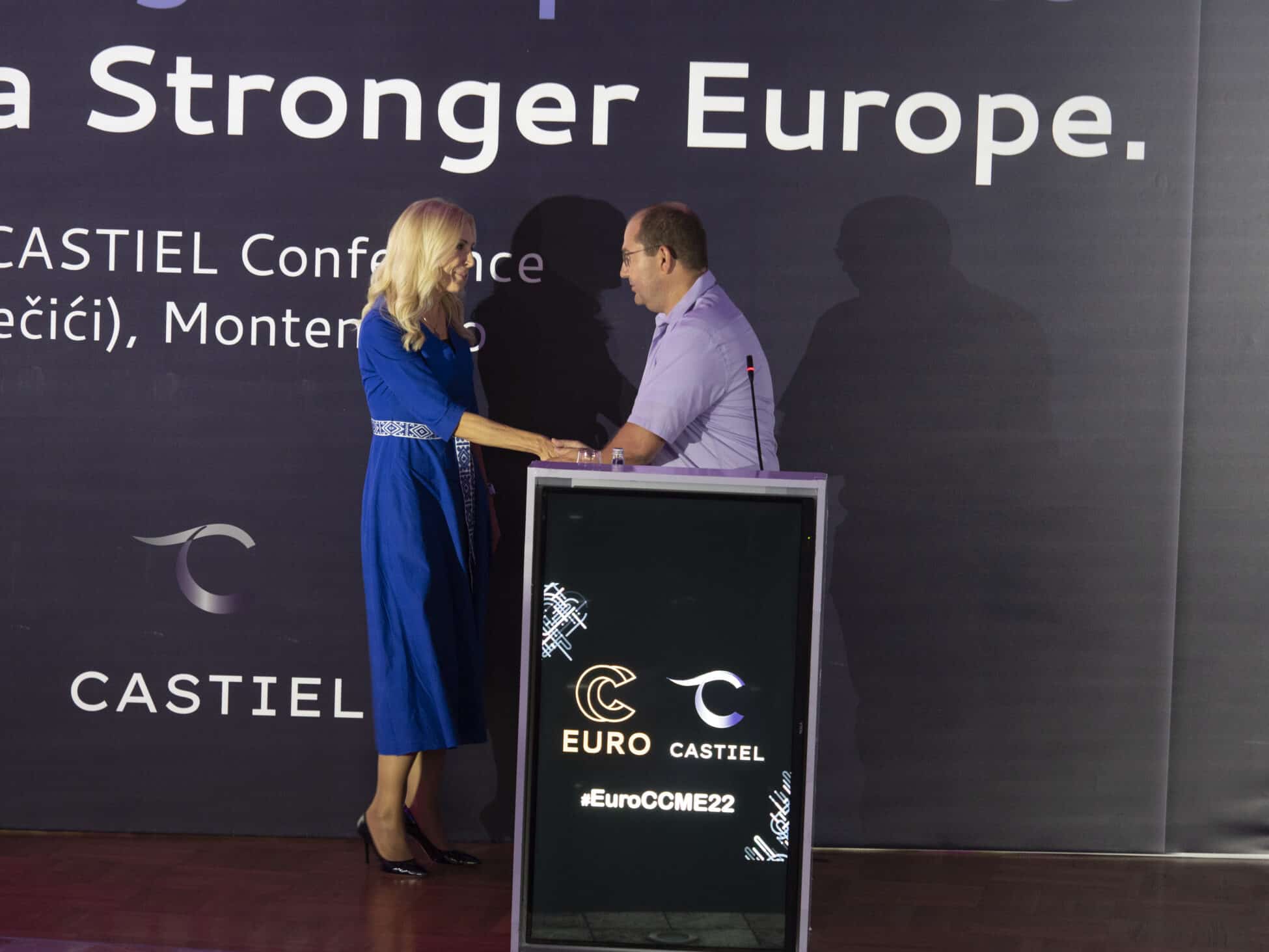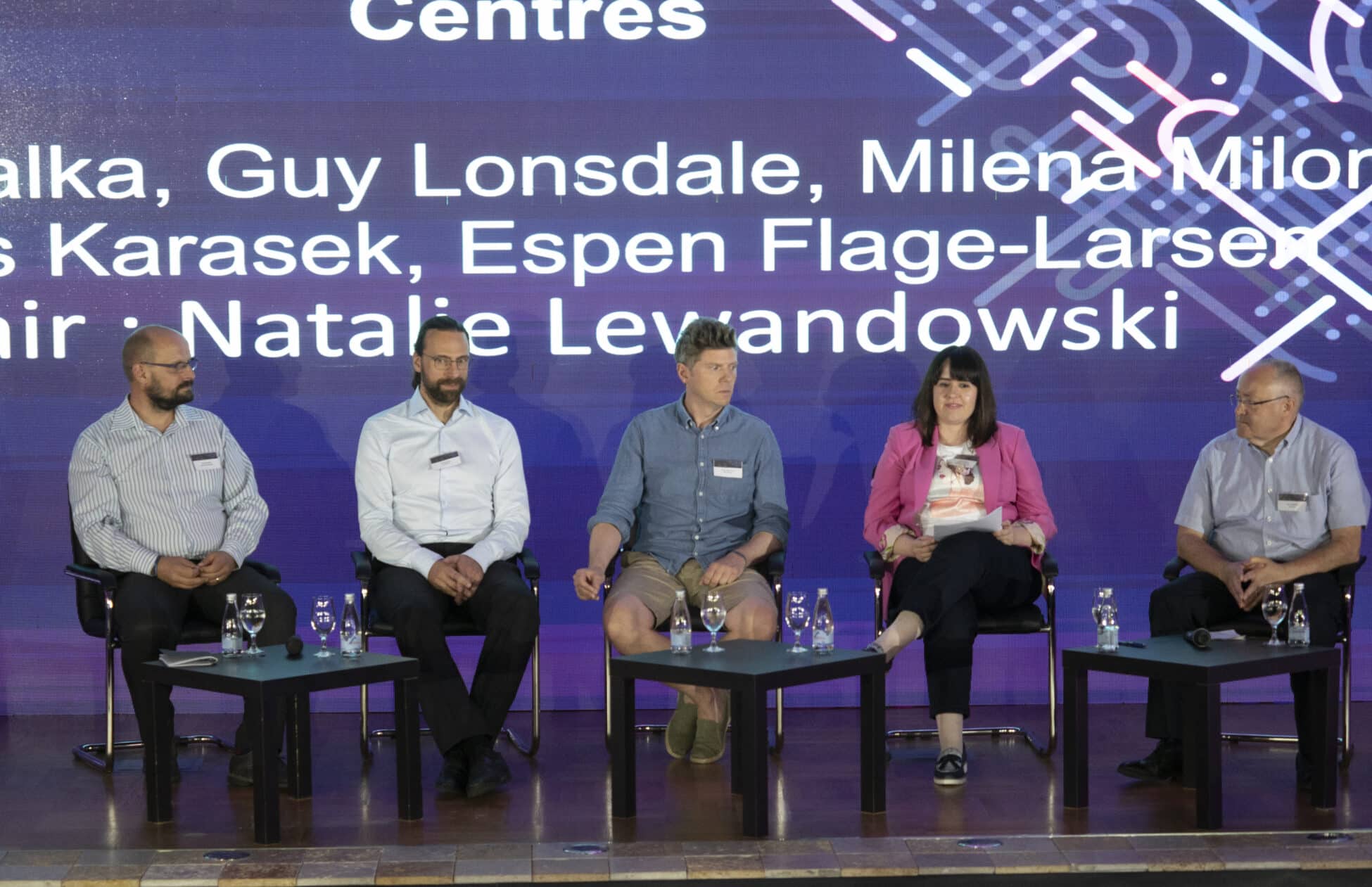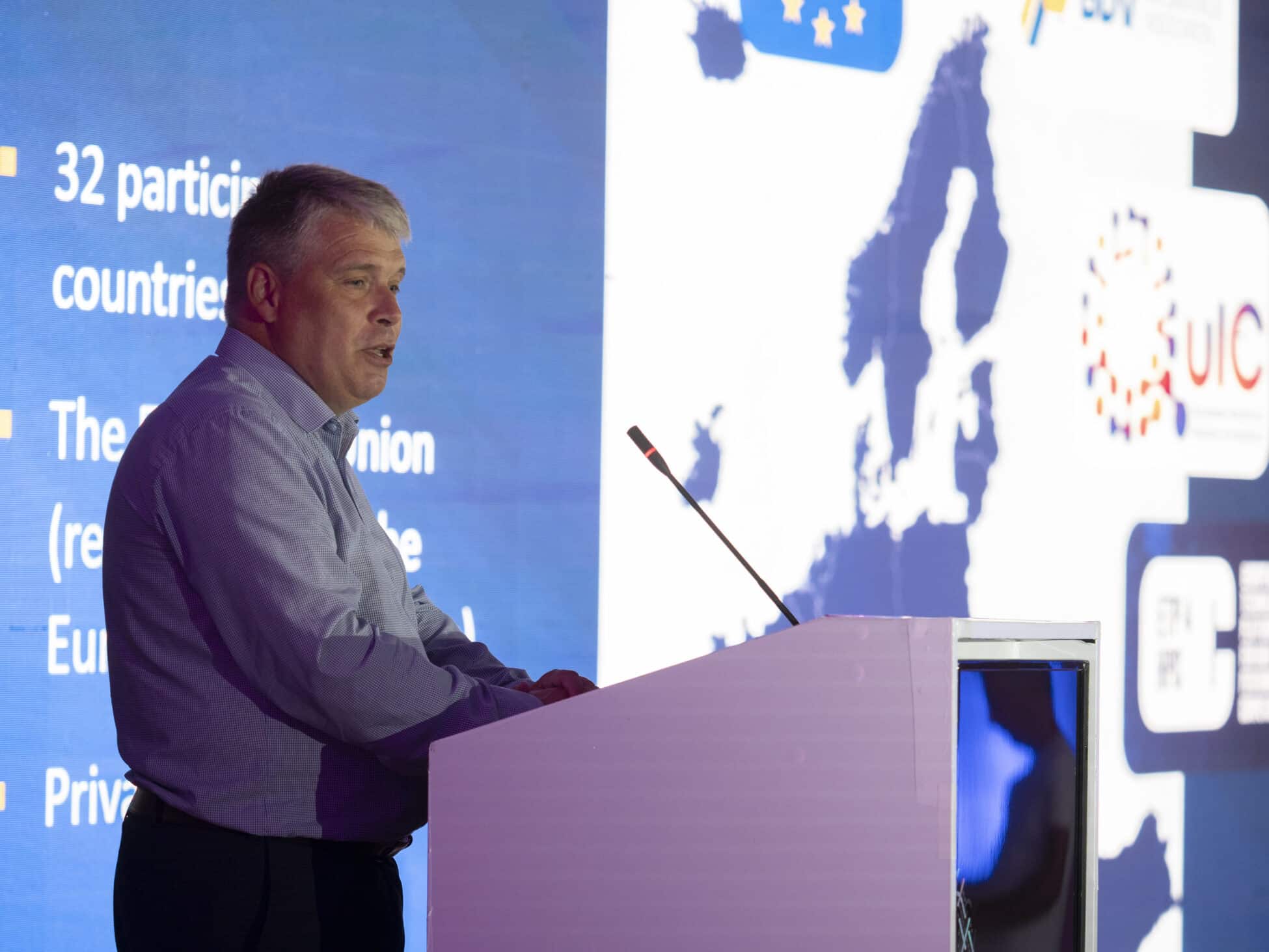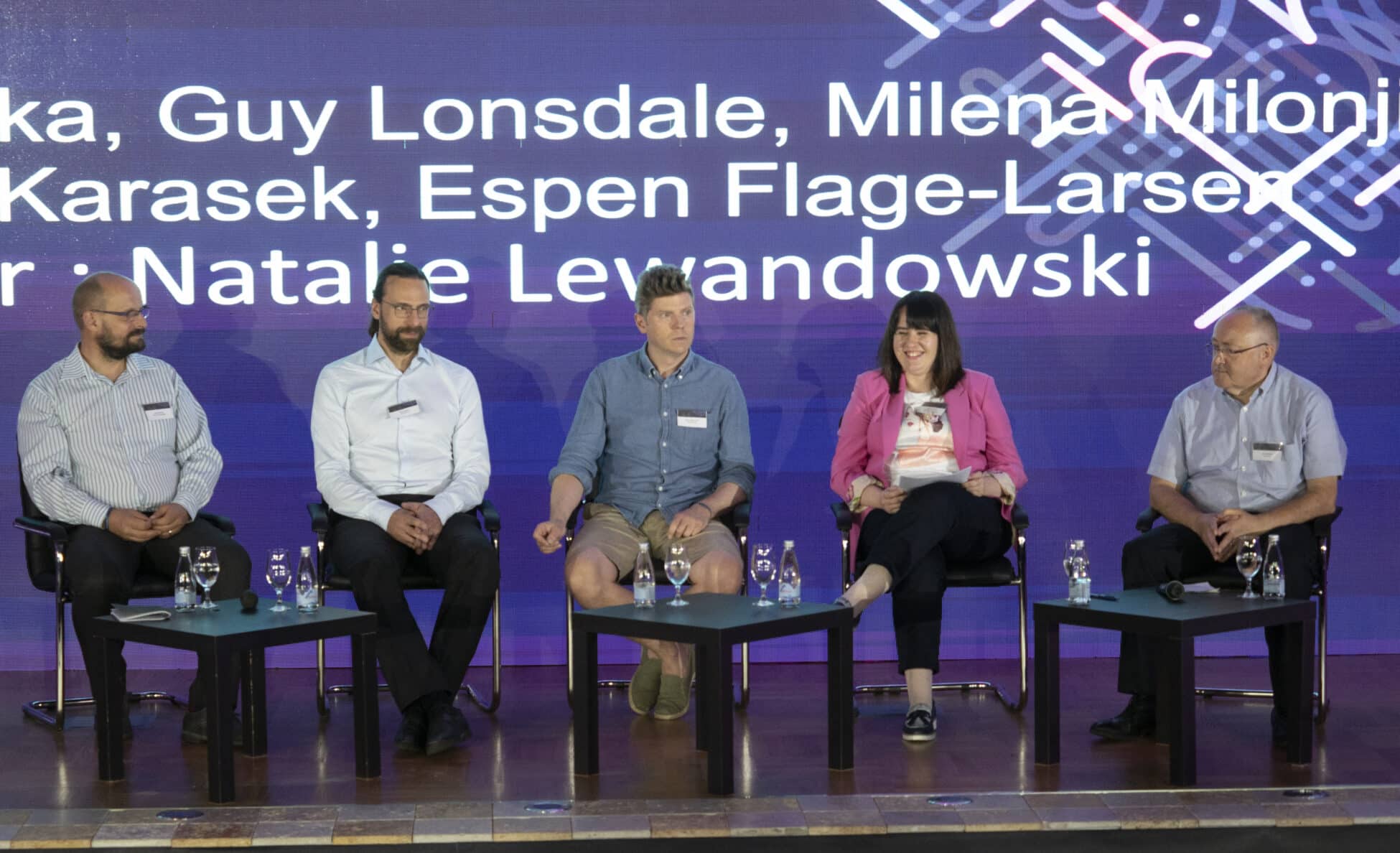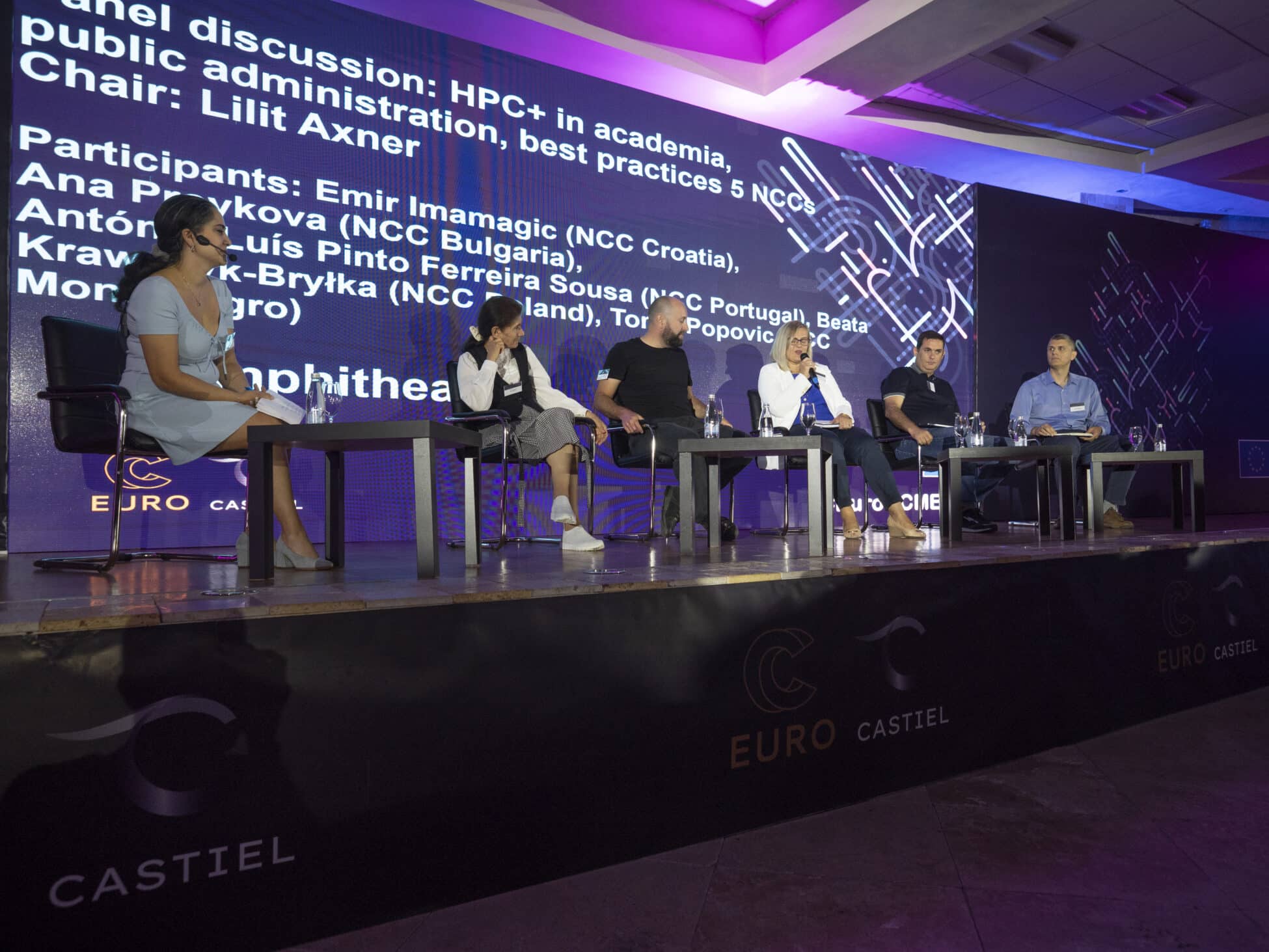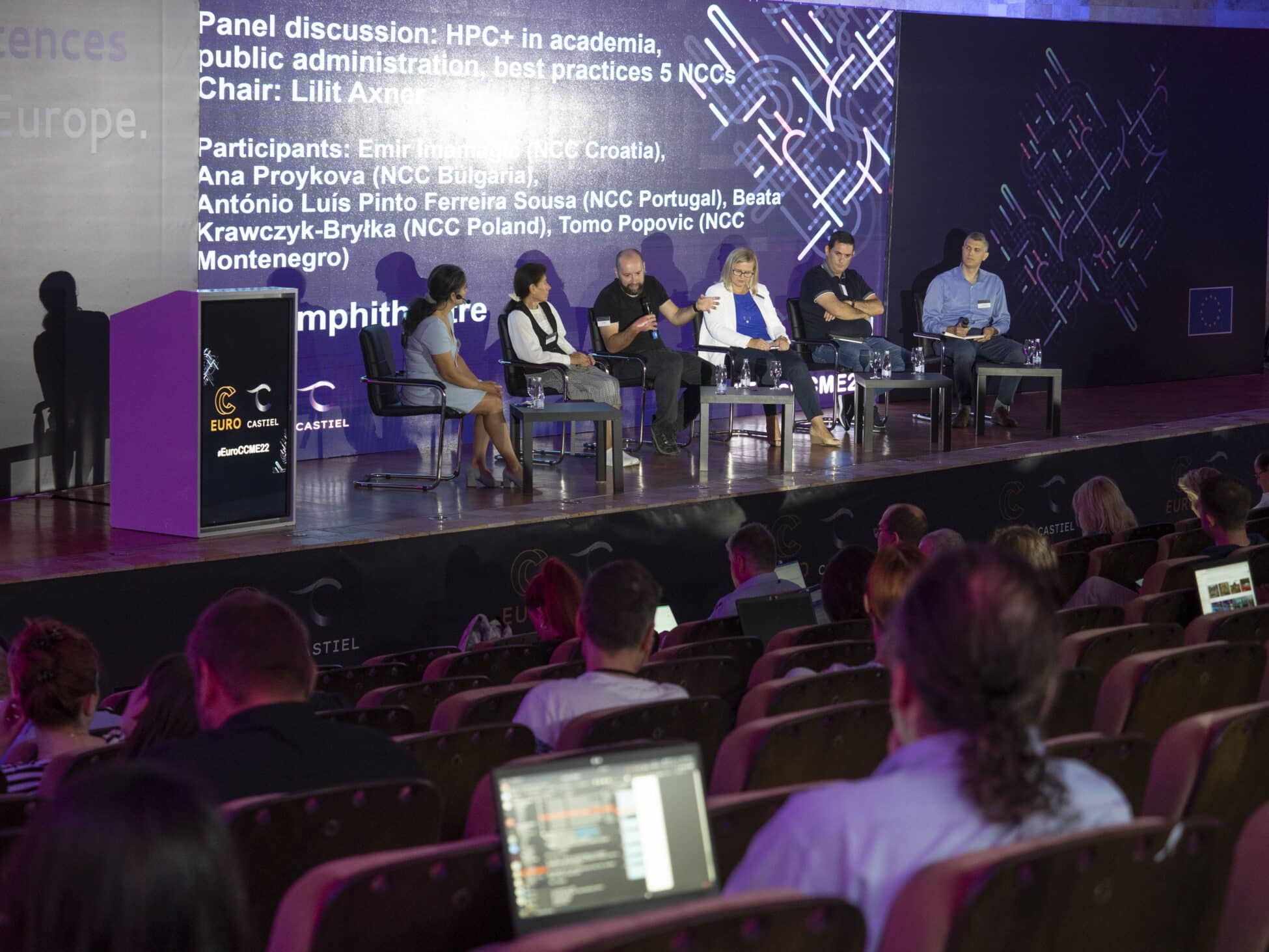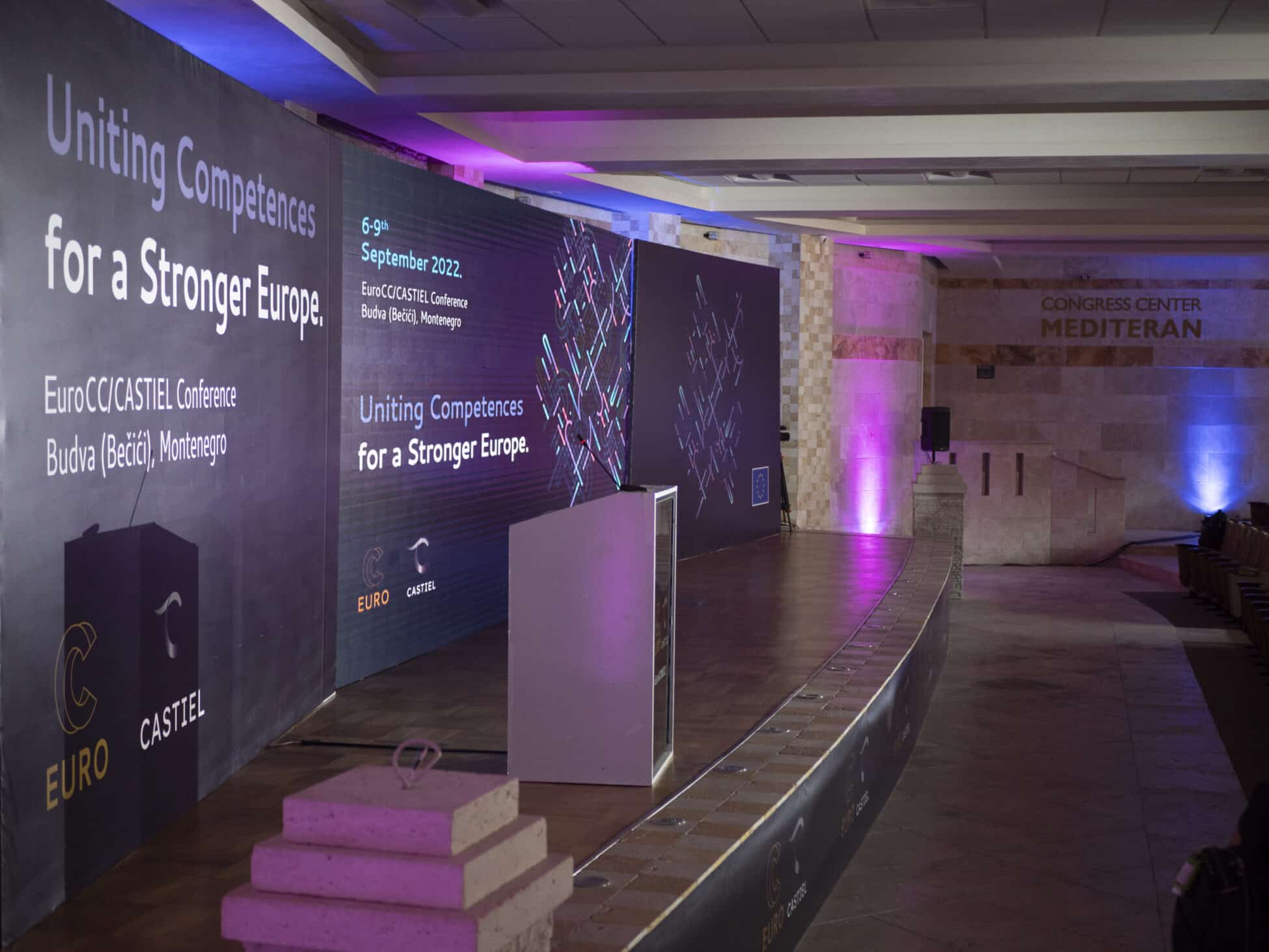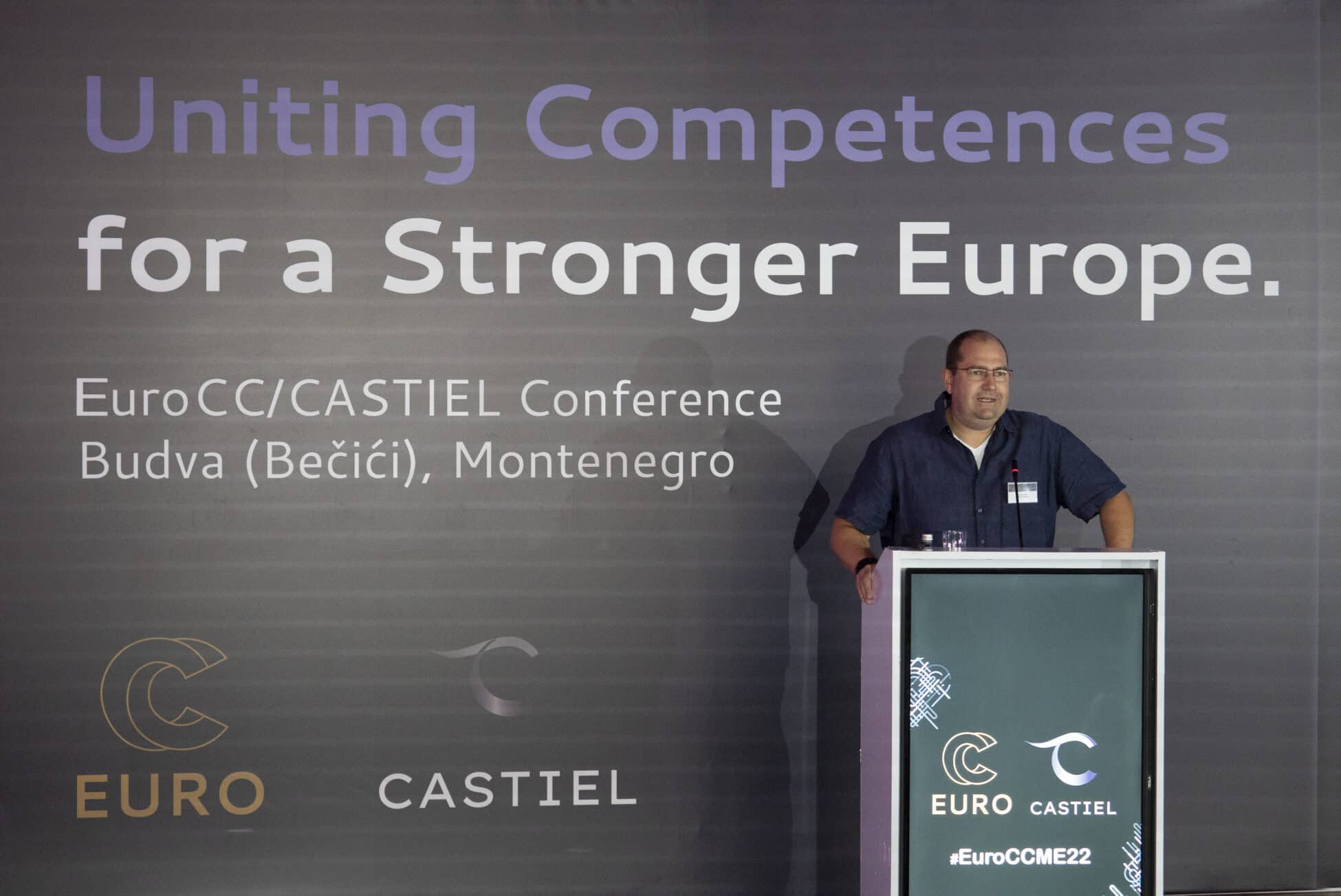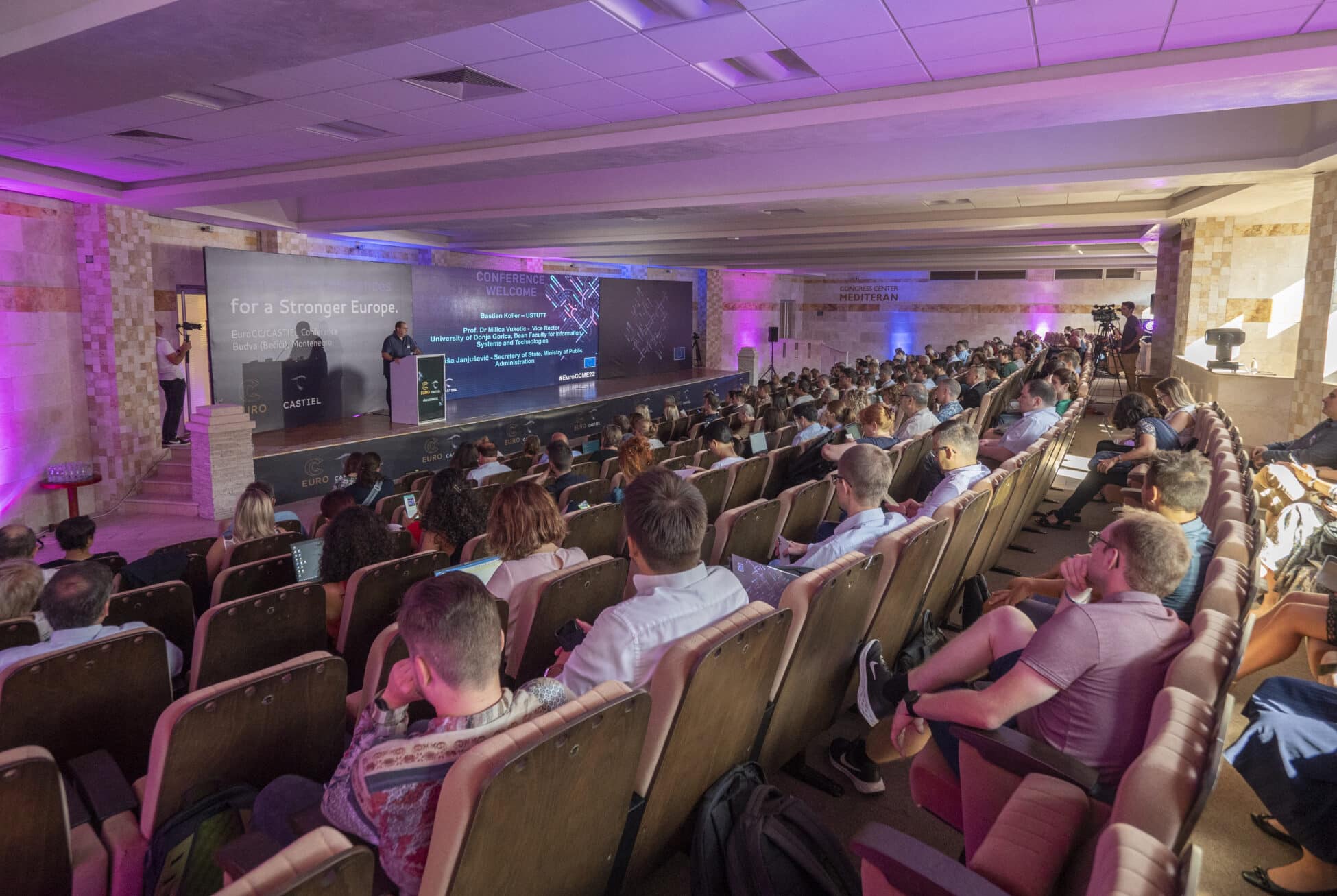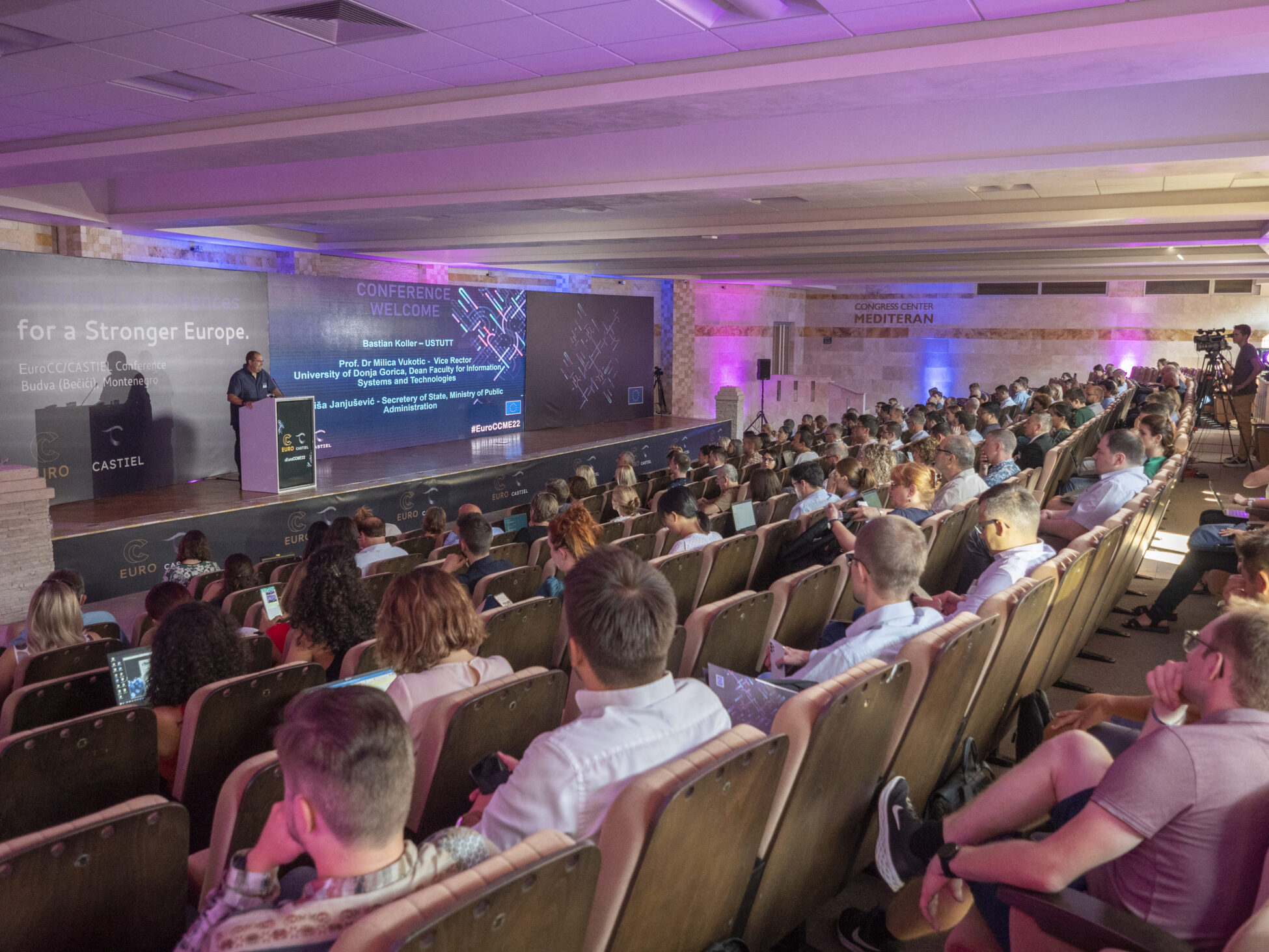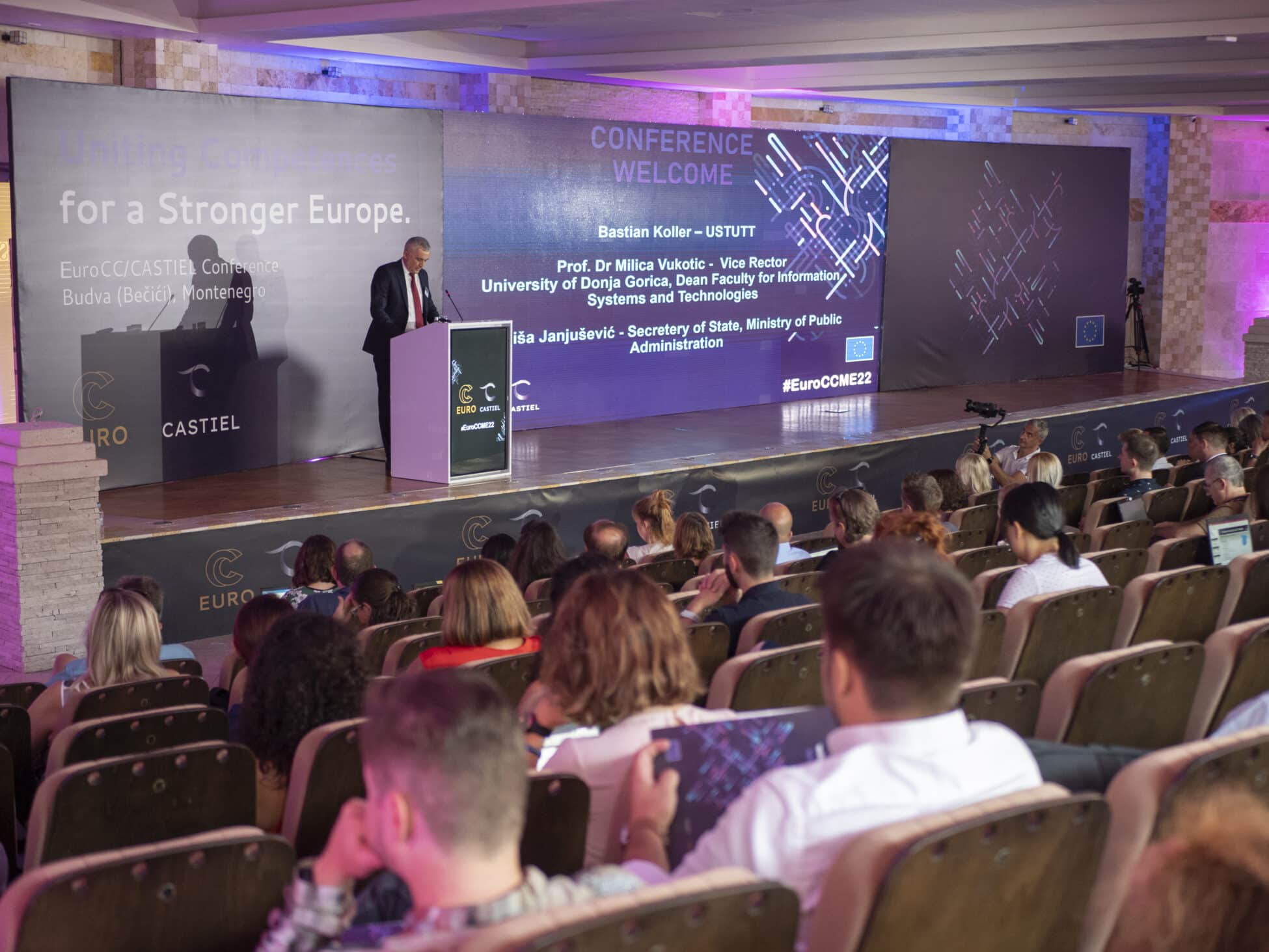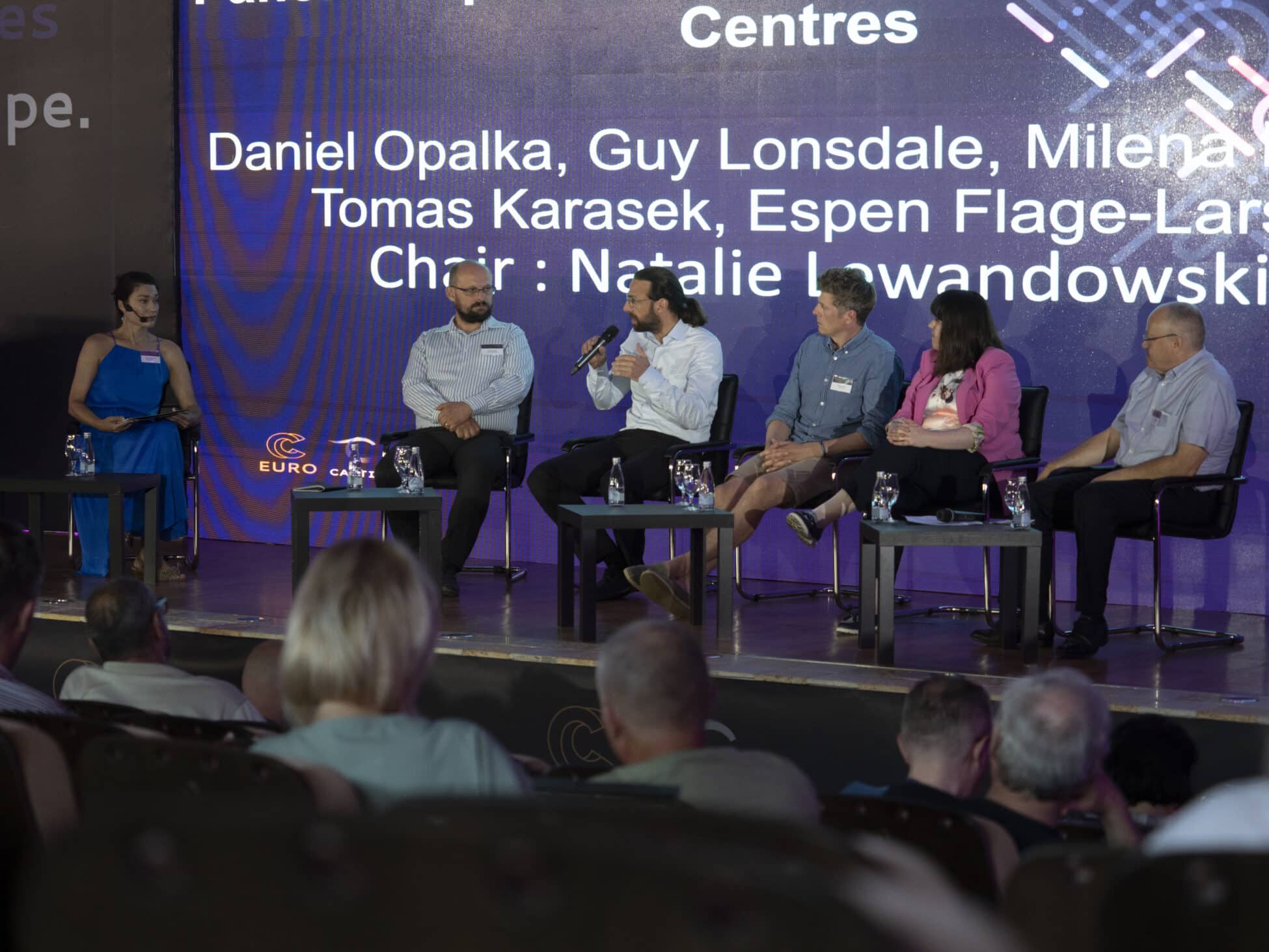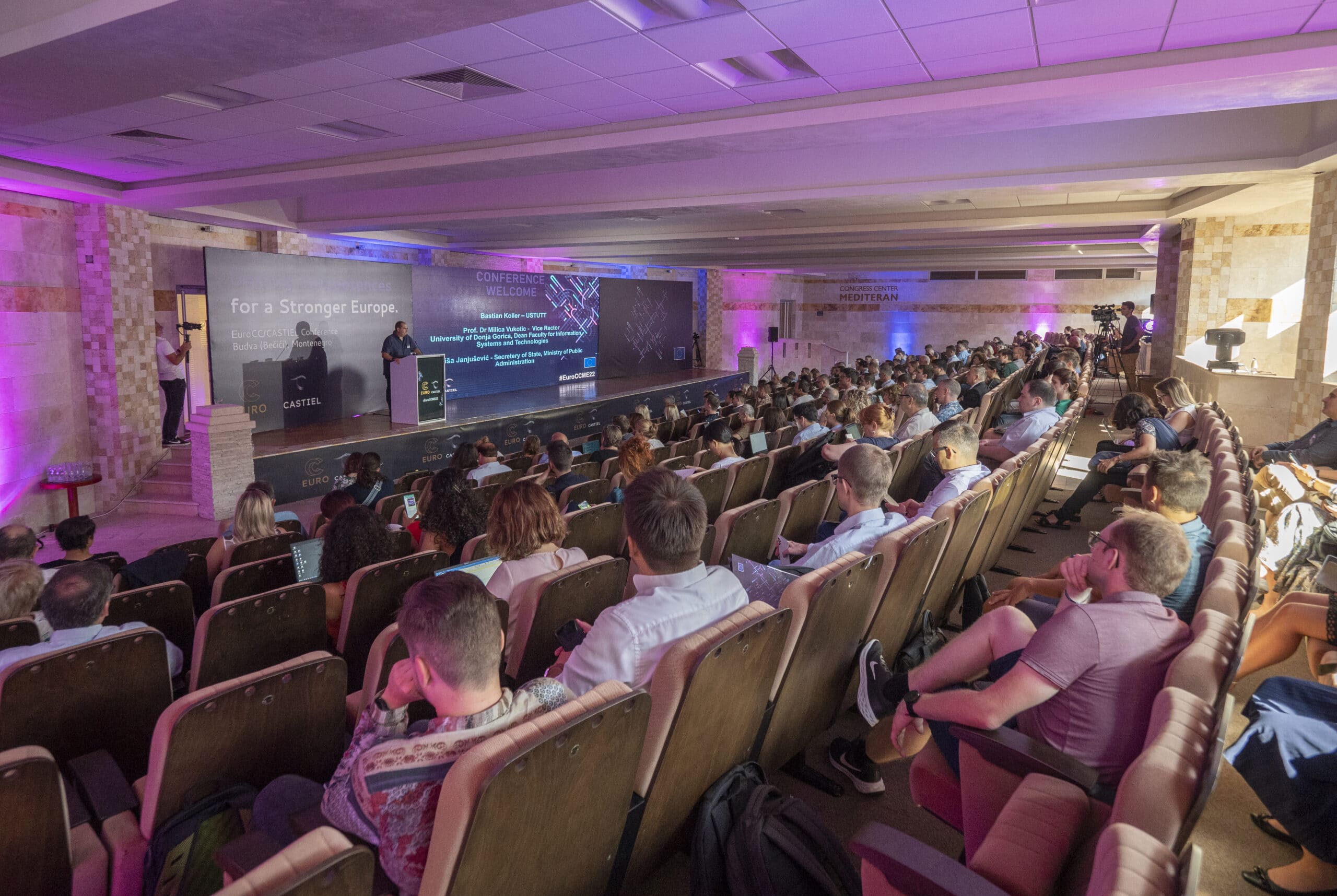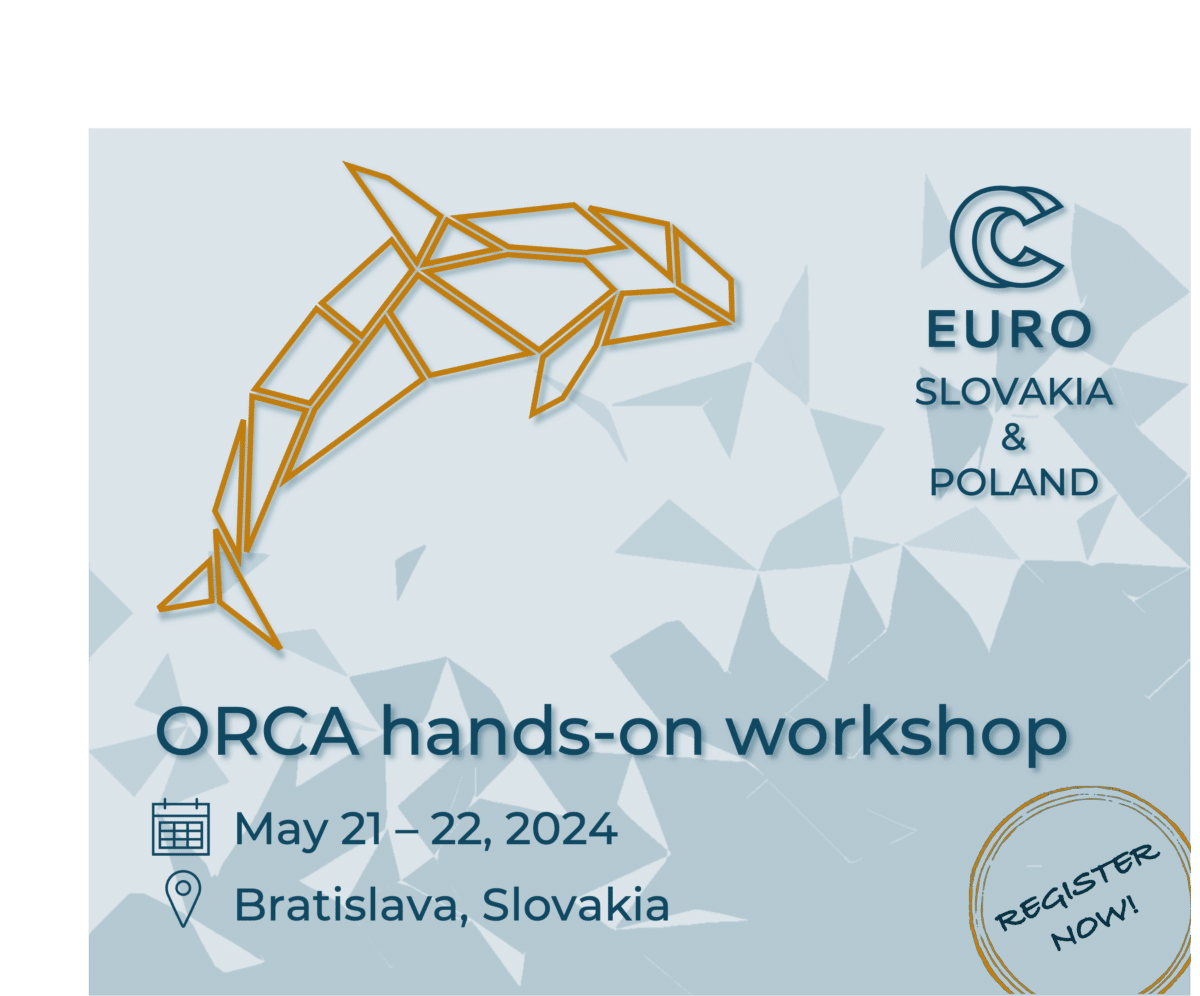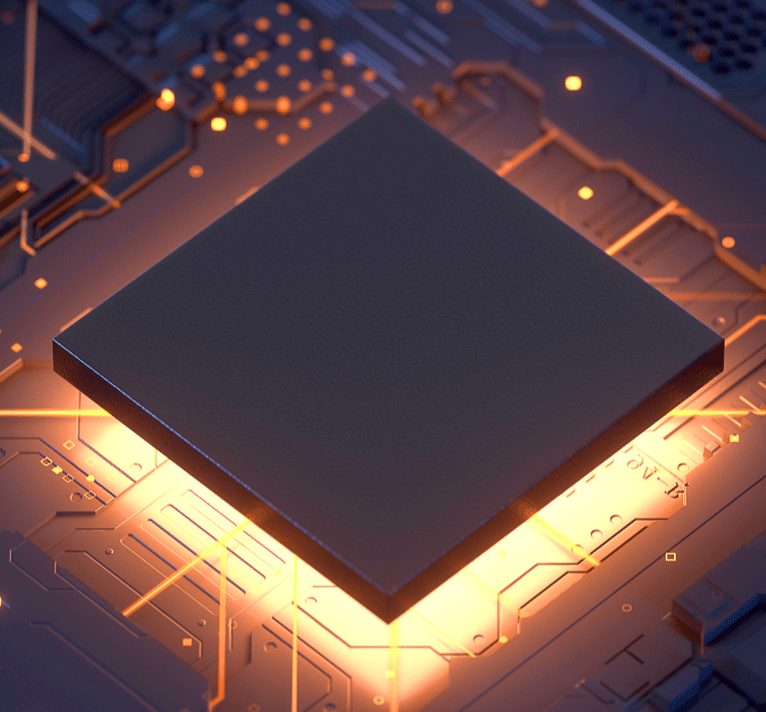The international scientific and academic conference in the field of high-performance computing (HPC), called “EuroCC/CASTIEL”, was held from September 6 to 9 in Bečići, Montenegro. The conference is realized within the framework of the EuroCC project-National Competence Centers in the Framework of EuroHPC that deals with high performance computing.
Due to the pandemic, this is the first in-person conference two years after the start of the project. The conference brought together over 200 researchers from prestigious European universitiesand institutes, from 33 countries, as well as around 500 people that followed the conference through livestream on YouTube, during the days that it was open for public.
The conference was opened by Dr. Ing. Bastian Koller, project coordinator from the University ofStuttgart, prof. dr Milica Vukotić, Vice-rector of the University of Donja Gorica and DragišaJanjušević, State Secretary of the Ministry of Public Administration of Montenegro.
During the conference around20 panels and trainings were held: Training WG, Industry WG, Open Meet and Greet NCCs, Competence WG, Communication WG, Legal Workshop, Commercial Access to public systems ,EuroCC 2 & CASTIEL 2 Info & Discussion Session, NCC Diversity Meeting, Open Meet& Greet NCCs, Public presentation of EuroCC & CASTIEL, Highlights of the NCCs, HPC4SME2, Importance of National Competence Centres, Paneldiscussion: HPC+ in academia, public administration, best practices,SMEs and HPC+ (SelectedFF4EuroHPC Success Stories), Panel Discussion on Industrial Uptake of HPC+
.The conference covered topics from the field of HPC technologies and related disciplines such as high-performance data analysis (HPDA), artificial intelligence (AI), machine learning, parallel programming, computer simulations, and the like. Also, the focus was on current topics in the global age, as well as their impact on the entire society, including the latest technological and business achievements in this area.
The emphasis is mostly on advanced e-infrastructure, thekey component of which is precisely HPC, which contributes to the development of modern science and is key to many advanced researches. In addition to the above, the conferencepresented projects received as part of the FF4EuroHPC open call aimed at the highest quality experiments of innovative small and medium-sized enterprises across Europe, including the use of artificial intelligence, cloud technologies, HPC and others.
